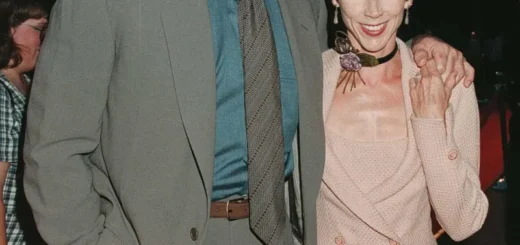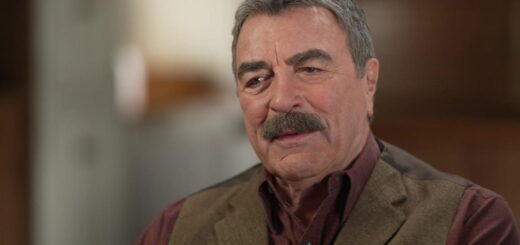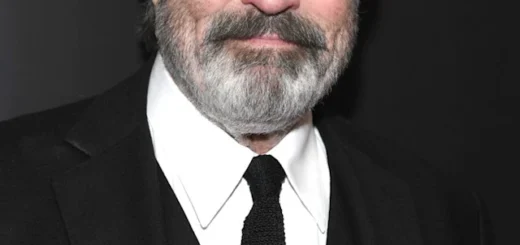“Tom Selleck Reflects on the Struggles That Shaped His Stardom in ‘Magnum, P.I.’ in New Memoir”
Tom Selleck kicks off his memoir with a dramatic scene: at 17, he and two friends are airborne in his mom’s red Chevy Corvair, careening off Mulholland Drive in Los Angeles. The accident is harrowing but ultimately everyone is okay, setting a unique tone for his reflective journey.
“Starting with that moment was intentional,” Selleck, known for his roles in “Magnum, P.I.” and “Blue Bloods,” explains. “It felt like the perfect way to revisit my past and discuss how that traumatic event influenced my upbringing.”
In “You Never Know,” Selleck guides readers through his early years, from his time at the University of Southern California and his service in the Army, to his brief stint as bachelor No. 2 on “The Dating Game,” and his various small roles and commercials before his breakout Emmy-winning role as Thomas Magnum.
“I didn’t lead a headline-grabbing life,” the 79-year-old actor tells The Associated Press. “My goal with this book was to entertain by diving deep into these stories and sharing my personal experiences.”
Selleck dedicated four years to writing the memoir longhand on yellow legal pads, citing inspirations like George Will and Raymond Chandler. He would read his work to his wife each evening.
The memoir reveals an actor who consistently put in the effort, enduring six unsold pilots and a less-than-stellar first film, “Daughters of Satan,” before achieving significant success in his mid-30s.
According to co-writer Ellis Henican, “Selleck’s authenticity is his greatest asset. He’s someone who has managed a successful career in a tough industry by staying true to himself.”
Selleck clarifies that his book isn’t a tell-all; rather, it’s a personal account. He does, however, share insights about his secret marriage to Jillie Mack, whom he met while she was performing in “Cats.”
“There’s a lot I haven’t talked about, and there’s a lot that’s been inaccurately reported,” he says.
Readers will learn that despite his tall, matinee-idol appearance and effortless charm, Selleck grappled with insecurity and self-doubt, describing it as a “formidable opponent.”
“I aimed to speak to young actors about the challenges of the industry,” he explains. “The product you’re selling is essentially yourself, and hearing ‘no’ is a constant.”
Selleck famously turned down the role of Indiana Jones in “Raiders of the Lost Ark” due to his commitment to “Magnum, P.I.” Though a Hollywood strike later made it possible to do both, Selleck reflects that his only regret is the lingering what-if.
“Magnum, P.I.,” which aired from 1980-1988, saw Selleck as a Vietnam War vet-turned-detective, cruising Hawaii in a red Ferrari. He won an Emmy in 1984 for the episode “Home from the Sea,” where Magnum, stranded in the Pacific, reflects on his past and questions his father’s legacy. Selleck recalls the Emmy win with a mix of surprise and pride.
“I was so caught up in hosting mode that I grabbed my Emmy and ran across the stage to my host podium. The applause, when I finally looked out, was louder and lasted longer than I expected,” he writes.
Throughout his career, Selleck took risks, such as turning down a steady role on “Young and the Restless” and enduring tension with a director on the 1979 miniseries “The Sacketts.”
“I’m most proud of being willing to take risks,” he reflects. “It doesn’t always pay off, but often it does. Risk is the price you pay for opportunity.”
The memoir also includes anecdotes about other celebrities like Carol Burnett, Princess Diana, and Frank Sinatra, who made his last acting appearance on “Magnum, P.I.” with notable professionalism and temperament.
Fans of “Blue Bloods” will find a special treat in the last chapters, where Selleck reveals he fought to make the show character-driven rather than a procedural. His efforts paid off, as the show continues into its 14th season.
Selleck describes his approach to acting as that of a bricklayer, dedicating himself to each role with meticulous care and moving on to the next with equal commitment.
“Just showing up for a paycheck was never my idea of work,” he concludes. “I aimed to do it professionally, without tantrums or throwing scripts against the wall.”


